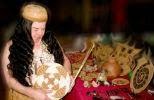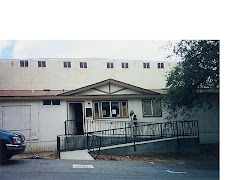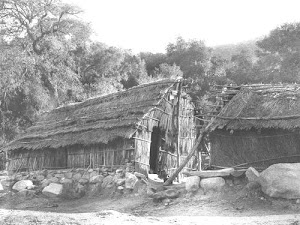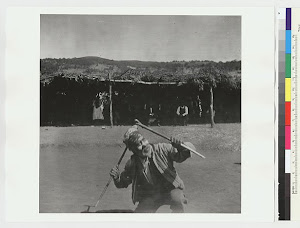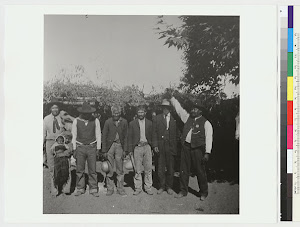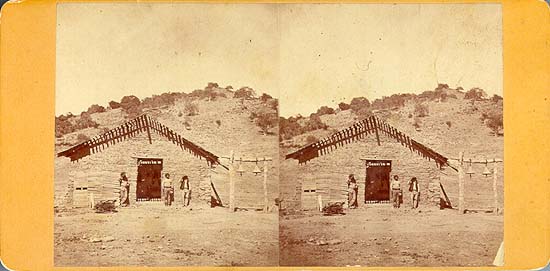Howka tribal members, Susan Hanks from the California State library will be hosting a webinar on Sept. 10. I thought tribal members might be interested in watching .
Title: Learning About California Indian History: An Introduction to the California Indian Historical Resources ProjectDate and time: September 10, 2008, 12pm - 1pmThis webinar will last approximately an hour. There is no charge for this Infopeople webinar. Pre-registration is not required.For more information and to participate in the September 10 webinar, go to http://infopeople.org/training/webcasts/webcast_data/279/index.html * Do you work with students who have school projects dealing with California Indians? * Do you wish that you knew more about California Indian history? * Does your library need more resources on California Indian history? If your answer to any of these questions is "yes," then you'll want to tune in to this webinar.The California Indians Historical Resources project was initiated through the California Native American community's response to Early California Laws and Policies Related to California Indians, a 2002 California State Library (CSL) report. Following the report's publication, CSL representatives visited with tribal and public government offices, libraries, education centers, cultural centers, parks, and museums in over 27 counties to gather information on California's Native American information resources. It became evident that access to historically accurate materials surrounding California Indian history are not readily available, and access to primary resource documents surrounding early California History remain difficult to access. The California Indians Historical Resources Project produced three self-contained databases: * Early California Newspapers 1846-1866; * Federal Documents Related to California Indians 1847-1868 & 1920; * State of California Indian legislative History Documents 1849-1863 & 1937. Each of the databases is contained on a single CD. The 3-disc set will be sent to all California public libraries through their Cooperative Library System's delivery system. The set will be mailed to all California tribal libraries. Individual libraries will determine the best way to make the databases available to their users. Additional copies, for use in branches or other locations, will be available for sale through the California State Library Foundation, 1225 8th St., #345, Sacramento, CA 95814, (916) 447-6331, or at http://www.cslfdn.org. This workshop will provide participants with: * A brief introduction to California Indian history; * An overview of Primary Resource Documents that deal with historic events surrounding the treatment of California Indians; * A map and timeline demonstrating treaty land cessions, treaty negotiations and legislation. Join us for an investigation of the treatment of Indians in California, and Federal and State of California government relations with California Indians through primary resource documents. Speaker: Susan Hanks. Susan has over 25 years of library experience, with 21 years of public library experience including work in rural, neighborhood and main branches, administration, acquisitions, cataloging, and archives. Susan is currently a Library Programs Consultant with the State Library, working with California tribal libraries, Preservation, and Rural Libraries. As the current President of the American Indian Library Association, she works to promote library services and resources nationwide. Infopeople's funding limits attendance at live webinars to anyone in the California library community. If you are outside California, please do not view the live event. However, you are welcome to see the archived version the day following the webinar. Check our archive listing at: http://www.infopeople.org/training/webcasts/list/archived
Wednesday, August 27, 2008
Webinar about California Indian History
Posted by
Karen Vigneault Librarian
at
8:21 AM
0
comments
![]()
Monday, August 25, 2008
Our Spirits Don't Speak English: Indian Boarding School
Our Spirits Don't Speak English: Indian Boarding School" is a Native American perspective on Indian Boarding Schools. This DVD produced by Rich-Heape Films, Inc. uncovers the dark history of U.S. Government policy which took Indian children from their homes, forced them into boarding schools and enacted a policy of educating them in the ways of Western Society. This DVD gives a voice to the countless Indian children forced through a system designed to strip them of their Native American culture, heritage and traditions.
Watch the trailer http://www.richheape.com/boarding-school.htm
Posted by
Karen Vigneault Librarian
at
9:01 AM
0
comments
![]()
Thursday, August 21, 2008
gay marriage in Oregon? tribe says yes!
http://www.oregonlive.com/news/index.ssf/2008/08/coquille_tribe_will_sanction_s.html
by Bill Graves, The Oregonian
Doug Beghtel / The OregonianKitzen Branting (wearing red top) and Jeni Branting plan to be married under a new law adopted by the Coquille Tribe. They are recognized as domestic partners in Washington and will be married in the Plankhouse (behind them) on the Coquille reservation next May.
COOS BAY -- Kitzen and Jeni Branting have been in a committed lesbian relationship since high school and plan to get legally married in Oregon next spring.
Yes, in Oregon.
True, voters amended the state Constitution constitution in 2004 to allow marriage only between only a man and a woman. And Congress outlawed gay marriage more than a decade ago.
But Kitzen Branting, 25, is a member of the Coquille Indian Tribe on the southern Oregon coast.
As a federally recognized sovereign nation, the tribe is not bound by the Oregon's Constitution. The tribe recently adopted a law that recognizes same-sex marriage and extends to gay and lesbian partners, at least one of whom must be a Coquille, all tribal benefits of marriage.
The Coquilles (which tribal leaders prefer to pronounce KO-kwell) are probably the first tribe in the nation to legalize same-sex marriage, says Brian Gilley, a University of Vermont anthropology professor and author of the book, "Becoming Two-Spirit: Gay Identity and Social Acceptance in Indian Country."
Many Native American tribes historically accepted same-sex relationships, Gilley says. But after a lesbian couple married under an ambiguous Cherokee law in Oklahoma three years ago, that tribe's council adopted a law banning same-sex marriage. Other tribes across the nation, including the Navajos, the nation's largest tribe, passed similar bans, he says.
Because the Coquilles have federal status, a marriage within the tribe would be federally recognized, Gilley says. And that would violate the Defense of Marriage Act, a law that says the federal government "may not treat same-sex relationships as marriages for any purpose."
The federal government could challenge the Coquille law as a way of testing the limits of tribal independence.
"This could be a test of sovereignty," he says.
The tribe concluded that the Defense of Marriage Act may bar the tribe from conferring federal benefits or money on same-sex spouses, said Melissa Cribbins, assistant tribal attorney.
Ken Tanner of Ashland, chief of the Coquilles, gathered Friday with two tribal attorneys and a reporter in the plankhouse in Coos Bay. The 2-year-old meeting hall was built in traditional style but on a larger scale with hand-crafted cedar plank walls and hand-peeled pillars of timber. A simple broad bench fringes the hall, which is open and empty save for the smell of cedar.
In a brief prayer, Tanner called on the grandfather creator to bless the building and then took a seat with the others on log sections around a gas fire at one end of the hall.
Native Americans are "sensitive to discrimination of any kind," says Tanner. "For our tribe, we want people to walk in the shoes of other people and learn to respect differences. Through that, we think we build a stronger community."
The new law establishes tribal rules for recognizing marriage, whether for gay or heterosexual couples. It won't take effect until the tribe also creates laws for divorce and child custody, tribal attorney Brett Kenney says. The seven-member tribal council expects to adopt such laws next year.
As a practical matter, Jeni and Kitzen Branting, whose maiden name is Doyle and who legally adopted Jeni's last name three years ago, already have the tribal benefits of marriage.
That's because part of the new law already is in effect, recognizing marriages and domestic partnerships legally established in states and countries. The Brantings entered a legal domestic partnership in Washington last year, and the tribe sees the partnership as tantamount to marriage.
While Jeni Branting, 27, is not a tribal member, she is entitled to tribal benefits as Kitzen's spouse, even though the couple plans to move off tribal land next week to Edmonds, Wash., near Seattle, where both grew up. Jeni Branting, for example, has applied for the Coquille health care plan. She also is entitled to housing and fitness benefits and access to tribal community events.
The tribe in recent years has become wealthy enough to provide support to its 850 members, about half of whom live in Coos and four neighboring counties.
The Brantings met in high school in Edmonds while working in theater productions. They went on to attend The Evergreen State College in Olympia, where they focused on Native American studies and graduated last spring. They spent the past year living on tribal land and studying Coquille culture and history for a senior project.
They were among several tribal members who urged the council about a year ago to consider establishing same-sex marriage.
"I wanted my tribal family to say, 'Yes, we recognize that you are equal to any other tribal member, and you are just as important, and your spouse should have the same rights as any other spouse,' " Kitzen Branting says.
Kenney, the tribal attorney, said he could find no other tribe that had legalized same-sex marriage.The culture committee reviewed tribal history and concluded "same-sex domestic relations were accepted with no exclusions from tribal citizenship, the community, auspices or spiritual activities," reported Jack Lenox, the committee chairman.
The new law stirred "some strong feelings" among a minority of tribal members who opposed it, Tanner said. Yet all but two members of the council and a majority of 14 people who testified in a public hearing supported it, tribal leaders said.
"I think it is going to have a very positive impact on this tribe," Tanner says.
Whatever opinions the wider world might express about the Coquilles' new law, Kenney said, the act is for the tribe "a solemn, internal matter."
And for the Brantings, it's personal.
They are planning a wedding for May in the plankhouse. Chief Tanner has agreed to officiate.
"We just want to have a celebration with our families," says Jeni. "We just want to do what everyone else does."
-- Bill Graves; billgraves@news.oregonian.com
Posted by
Karen Vigneault Librarian
at
9:35 AM
0
comments
![]()
*Report Shows High Regional Lung and Colorectal Cancer Rates in American
*Report Shows High Regional Lung and Colorectal Cancer Rates in AmericanIndians and Alaska Natives in the United States, 1999-2004*Author: CDChttp://www.cdc.gov/cancer/healthdisparities/what_cdc_is_doing/aiansupplement.htmPublished on Aug 21, 2008 - 7:32:37 AMAug. 20, 2008 - CDC released the most comprehensive cancer data availablefor American Indians and Alaska Natives (AI/AN) across the United States.Cancer incidence rates, especially lung and colorectal, among AI/AN men andwomen varied greatly across six geographic regions of the country (Alaska,East, Northern Plains, Pacific Coast, Southern Plains, and Southwest). Thedata was analyzed from CDC's National Program of Cancer Registries, theNational Cancer Institute's Surveillance, Epidemiology and End Results andlinkage to the Indian Health Services records. These findings, "CancerIncidence in American Indian/Alaska Native (AI/AN) Populations" werepublished online today and appearing in the September 1, 2008, supplement ofCancer.The supplement of 16 studies also focuses on disparities in health riskbehaviors and cancer test use, explains how incidence rates vary widely byregion, and methods for improving cancer surveillance among the AI/ANpopulations.WHO: Some CDC co-authored articles include:Lung Cancer Incidence among American Indians and Alaska Natives in theUnited States, 1999-2004 details the enormous variation in lung cancerincidence rates across Indian Health Service regions. In the NorthernPlains, AI/AN had the highest rates, followed by Alaska, and the lowestrates were in the Southwest.Regional Differences in Colorectal Cancer Incidence, Stage, and Subsiteamong American Indians and Alaska Natives, 1999-2004 describes how AI/ANliving in Alaska and in the Northern Plains regions have significantlyhigher incidence rates of colorectal cancer compared to non-Hispanic white(NHW) persons. Also, AI/AN in all regions were more often diagnosed at laterstages.Cancer in American Indian and Alaska Native Young Adults (20-44 years ofage): United States, 1999-2004 describes how the cancer patterns thatcharacterize the overall AI/AN population are apparent among young adults inwhom the rates also varied for selected cancers across Indian Health Serviceregions.Breast Cancer Incidence among American Indian and Alaska Native Women-UnitedStates, 1999-2004 describes how breast cancer incidence rates among AI/ANwomen varied significantly across Indian Health Service regions. The highestrates were in Alaska and the Northern and Southern Plains and were similaror slightly lower than in NHW women; the lowest rates were in the Southwestand were less than half the rate of NHW women. AI/AN women in all regionswere less likely than NHW women to be diagnosed with localized breastcancer.Regional differences in cervical cancer incidence among American Indians andAlaska Natives, 1999-2004 shows that for all regions combined incidencerates of cervical cancer for AI/AN women exceeded those NHW women and variedby geographic area.Gallbladder Cancer Incidence among American Indians and Alaska Natives,United States, 1999-2004 reveals that, compared to NHW populations, AI/ANhad significantly higher gallbladder cancer incidence rates in most regionsof the country.Cancers of the Urinary Tract among American Indians and Alaska Natives inthe United States, 1999-2004 describes how AI//AN have approximately 50percent greater risk of kidney cancer, although half the risk of bladdercancer compared to NHW.Primary Liver Cancer Incidence Among American Indians and Alaska Natives,United States, 1999-2004 describes the high liver cancer incidence ratesamong AI/AN compared to NHW for all regions except the East. The highprevalence of known risk factors for primary liver cancer among AI/ANpopulations likely make this cancer an important future health concern forthis population.Incidence of Cancers of the Oral Cavity and Pharynx Among American Indiansand Alaska Natives, 1999-2004 show that incidence rates for cancers of theoral cavity and pharynx for AI/AN should be examined by individual anatomiccancer site and by geographic region when describing cancer burden andplanning cancer control activities.Prostate Cancer Incidence Among American Indian and Alaska Native Men,United States, 1999-2004 reveals that prostate cancer incidence rates andprostate specific antigen (PSA) testing were lower and varied regionallymore for AI/AN men than for NHW men underscoring the need for research tobetter understand regional variation in incidence and to reduce thedisparity in stage distribution.Gastric Cancer among American Indians and Alaska Natives in the UnitedStates, 1999-2004 describes how AI/AN populations are at greater risk forgastric cancer than NHW populations and that relatively high rates of cancerin the central/distal portions of the stomach among AI/AN in some geographicregions may indicate a disproportional burden of H. pylori-associateddisease.WHEN: For the online articles, to go www.interscience.wiley.com/cancer, andfor information about CDC's efforts in cancer prevention and control, pleasevisit www.cdc.gov/cancer.(c) Copyright YubaNet.com
Posted by
Karen Vigneault Librarian
at
8:52 AM
0
comments
![]()
Tuesday, August 19, 2008
LINTON FAMILY ARTS CLASS
Presents
“Bubble Lady w/Papose Class”
SUNDAY August 24, 2008 @ 9:00a.m- 5:00p.m.
At Concha’s House (760-765-0350) on the Santa Ysabel REZ
(505 Epei Hill Road - right below Shot’s)
Faux Basketry can be added it time permits
Cost: $50.00
Please bring something to drink. Lunch will be “Pot Luck.” We may be outside so bring your sunscreen and/or a sweater, umbrella & hat, etc. - just in case.
Your Teacher: Elaine Linton 858-722-5711
Helpers: Concha Linton & Mary Lou Linton
Please bring your wood-burner, acrylic paints & dremal tools w/bits.
Posted by
Karen Vigneault Librarian
at
10:09 AM
0
comments
![]()
Monday, August 18, 2008
Free POW_WOW time coloring book
Free Coloring Book
Our free coloring book "Powwow Time - When American Indian People Celebrate" is available as a pdf download from our website. It is 21 pages of "NDN 101" geared toward young audiences. Get your free copy online or if you prefer a copy on cd, send us an email and we will get a copy in the mail to you.
Redbird
Promoting the Awareness and Celebration of Indigenous Cultures and People and Creating a Sustainable Future
www.RedbirdsVision.org
P.O. Box 702, Simi Valley, CA 93062
email: redbirds_vision@hotmail.com
MySpace: www.myspace.com/redbirdsvision
__._,_.___
Posted by
Karen Vigneault Librarian
at
12:51 PM
0
comments
![]()
Wednesday, August 13, 2008
Native American Women's Health Education Resource Center
Native Shop is a project of the Native American Women's Health Education Resource Center. We are marketing products as an economic development project to raise funds for the resource center's programs.
http://www.nativeshop.org/
Posted by
Karen Vigneault Librarian
at
10:29 AM
0
comments
![]()
Tuesday, August 12, 2008
FREE ELECTRONIC BOOKS
http://www.gutenberg.org/catalog/
Project Gutenberg is the first and largest single collection of free electronic books, or eBooks. Michael Hart, founder of Project Gutenberg, invented eBooks in 1971 and continues to inspire the creation of eBooks and related technologies today.
Why are these books free?
Copyright for most of these books has expired in the United States. (They may still be copyrighted in other countries). So anybody may make verbatim or non-verbatim copies of those works.
Posted by
Karen Vigneault Librarian
at
3:38 PM
0
comments
![]()
